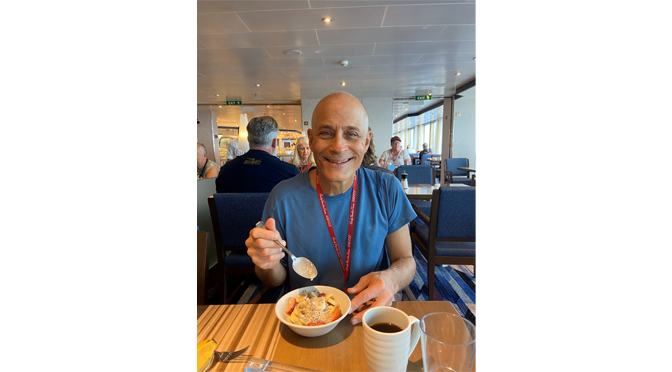
The Valley Ledger - In The Valley
By David Seitz, who has worked in the field of intellectual disability support for almost 45 years, most recently as Direct Support Professional with InVision Human Services based in Wexford and Reading, PA. He has also worked professionally as an actor for nearly that entire period. Both activities have kept him acting younger than his 65 years. He has a Bachelor of Arts in psychology from the University of Virginia and a Master’s Degree from United Theological Seminary.
As an experienced direct support professional (DSP), I’ve dedicated more than 40 years to caring for individuals like Brian, a 53-year-old man with Down syndrome, mental health challenges, and early-onset dementia. My journey began in 1979, inspired by my mother’s dedication to social work and fueled by a deep-seated commitment to making a difference in people’s lives.
Throughout my career, I’ve witnessed firsthand the challenges and triumphs of providing care to individuals with disabilities. From sporadic weekend coverage to grueling work schedules, the demands of this profession are immense. Yet, despite the sacrifices and hardships, my passion for this field has only deepened over the years.
Brian’s story is just one example of the countless individuals who rely on DSPs for support and assistance in their daily lives. As someone who must have 24/7 support to live successfully in his own home, Brian’s well-being is contingent upon the dedication and commitment of DSPs like myself.
Unfortunately, the current state of affairs is unsustainable. Low wages, high turnover rates, and inadequate funding threaten the stability and quality of care for individuals like Brian. DSPs often find themselves working overtime, not only to make ends meet financially but also out of a deep sense of compassion and dedication to their clients. In doing so, many DSPs are forced to sacrifice the time they need to support their own children and aging parents or the time to get to their second or third jobs.
DSPs, myself included, often find ourselves asked to stay for extra hours and even extra days after working our own full-time shifts because the next shift DSP has had their own family emergency and cannot report for duty and there is no relief staff available. We often find ourselves missing family events or being a no show for our own kids’ events. Noting my absence from family and community events, I’ve had friends and family ask me “When are you going to quit that job?”
DSPs are a dedicated and loving group of professionals. Many of us can share powerful stories about the lengths we have to go through to do our jobs. On a recent occasion, my company didn’t have someone to relieve me, I found myself in the situation where I would potentially miss the baptism of our newest family member at my church. I made the decision to take the individual that I support to this very important family event, not something I anticipated.
That same month I missed out on participating as an important member of the worship team at one of the Easter holiday services as I once again chose the support of Brian over my own personal needs. A peer at my company also did not go to the funeral of a family member because of the lack of weekend coverage. These instances happen all the time but still the DSPs soldier on.
Governor Josh Shapiro’s recent efforts to raise DSP wages and allocate additional funding to end the Emergency Waiting List offer a glimmer of hope. However, this is just the beginning. Sustainable change requires ongoing commitment and investment to ensure that DSPs are valued and compensated appropriately for their essential work.
As Pennsylvanians, we have a moral obligation to stand up for those who cannot always advocate for themselves. By supporting these initiatives and demanding sustained investment in disability services, we can pave the way for a brighter future for individuals with disabilities and the dedicated professionals who serve them.
In closing, I’m reminded of a recent encounter with Victor, a visitor from Zambia, whose words resonated deeply with me. On one of my daily excursions with Brian, we met Victor. Brian immediately embraced and hugged Victor, as he often does with the people he likes and meets.
Victor proclaimed, “You are protective of this man and I respect you,” he said, acknowledging the bond between Brian and me. It’s time for Pennsylvania to step up and protect its heroes—the DSPs who tirelessly advocate for individuals like Brian, ensuring they receive the care and support they deserve.
Let’s join hands and raise our voices to make Pennsylvania a beacon of inclusivity, equity, and compassion for individuals with disabilities and their dedicated caregivers. We can and must build a future where everyone, regardless of ability, is valued, respected, and empowered to thrive.
